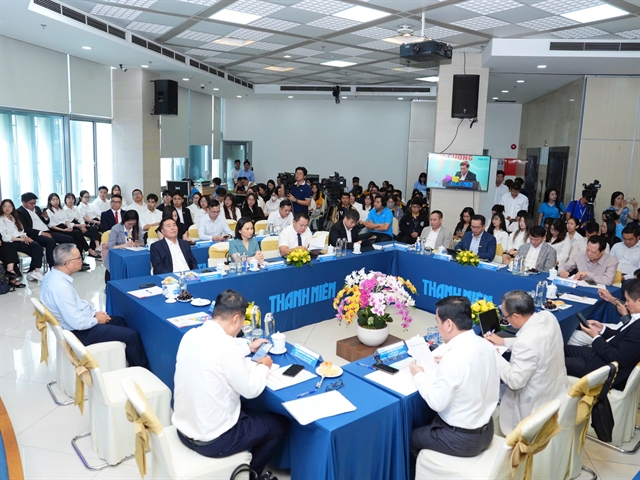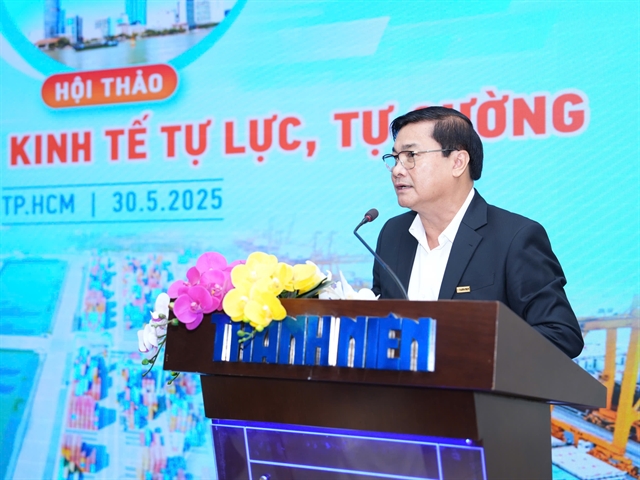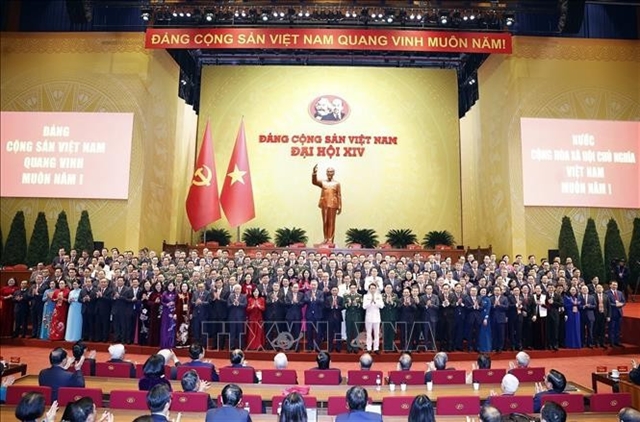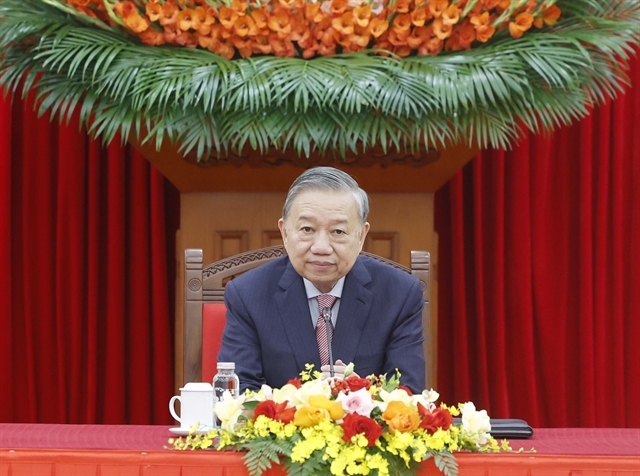 Economy
Economy


|
| Delegates at the seminar titled "Building a Self-Reliant and Resilient Economy" held by Thanh Niên Newspaper in HCM City on May 30. — Photo courtesy of the organiser |
HCM CITY — Now is a golden opportunity for Việt Nam to build a self-reliant and resilient economy to realise its aspiration of becoming a developed, high-income nation by 2045, experts affirmed at a forum in HCM City on May 30.
At the seminar titled 'Building a Self-Reliant and Resilient Economy' held by Thanh Niên Newspaper, economist Dr Trần Du Lịch emphasised that self-reliance does not mean reverting to self-sufficiency. Instead, it requires proactive global integration, mastery of technology and markets, and the development of a strong community of Vietnamese businesses capable of driving innovation and digital transformation.
In a world where countries are moving toward higher value-added production, Việt Nam cannot remain stuck in low-level outsourcing and assembly, he said.
“We often take pride in export figures, but much of it is contract manufacturing with limited value retained. Exporting US$10 billion while importing $9 billion worth of inputs brings minimal real benefit.”
Editor-in-Chief of Thanh Niên newspaper, Nguyễn Ngọc Toàn, noted that many sectors remain heavily dependent on imported materials. For example, the textile industry imports around 50 per cent of its inputs, footwear about 45 per cent, and the plastics sector up to 80 per cent.
This overdependence on a few major markets poses systemic risks, already seen in heightened trade remedies such as the imposition of high reciprocal tariffs by the US.
Toàn added that the Government has set out a long-term strategy to build a self-reliant, resilient economy. With the recent adoption of major policy resolutions, especially Resolution 68 on private sector development, Việt Nam now has the tools to advance this vision.

|
| Nguyễn Ngọc Toàn, Editor-in-Chief of Thanh Niên newspaper, speaks at the seminar. — Photo courtesy of the organiser |
Dr Lịch said the present is a period of "perfect timing" for Việt Nam to realise its goal of sustainable development, enhancing its self-reliance and resilience, as several critical policies are being implemented simultaneously.
Four major resolutions have recently been enacted, forming a 'four-pillar framework' for shaping Việt Nam’s long-term development vision, including Resolution 57 on promoting science, technology, and innovation, and Resolution 59 on proactive and comprehensive international integration.
“This is an unprecedented policy ecosystem, showing the State’s strong political will to drive private-sector growth, transform the growth model, and help Việt Nam avoid the middle-income trap,” Lịch said.
He warned that Việt Nam must act now before the country faces a significant ageing population. “If we miss this window of opportunity, we may not get another. It’s now or never.”
On the enterprise side, Lịch urged companies to reflect on their development strategies, form partnerships and help foster a transparent and fair competitive environment.
Chairman of Vietravel Corporation, Nguyễn Quốc Kỳ, encouraged businesses to restructure, embrace innovation, build strong brands and ensure transparency.
Many entrepreneurs at the seminar praised Resolution 68 as the first policy to clearly define the private sector as a central pillar of the economy. They noted that the resolution paves the way for a more open, supportive business environment.
Deputy CEO of Hòa Phát Group, Nguyễn Thị Thảo Nguyên, said the resolution not only removes long-standing obstacles but also inspires national pride and the spirit of self-reliance.
“Each business is like a cell in the national economy. If the cells are healthy, the economy will be strong,” she said. “We are eager to contribute more meaningfully to national development.”
She also called on policymakers to adopt measures aligned with international norms to protect domestic enterprises, especially as many importing countries tighten trade remedies using tariffs and technical barriers.
In recent years, cheap imports have flooded Việt Nam’s market. Domestic enterprises need a level playing field and a healthy local ecosystem to grow and compete, she noted.
Delegates also highlighted the urgent need to develop a supporting industry that meets rules of origin in major export markets.
Chairman of Việt Thắng Jean, Phạm Văn Việt, stressed that only by increasing localisation and integrating more deeply into global supply chains can Vietnamese companies improve competitiveness.— VNS




